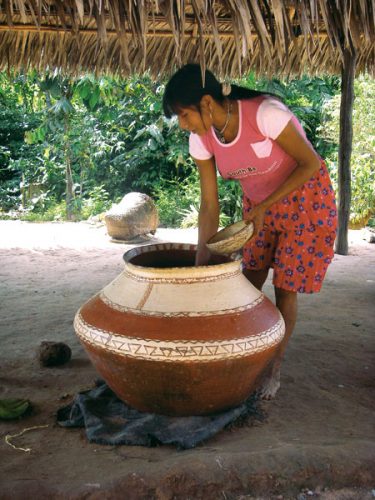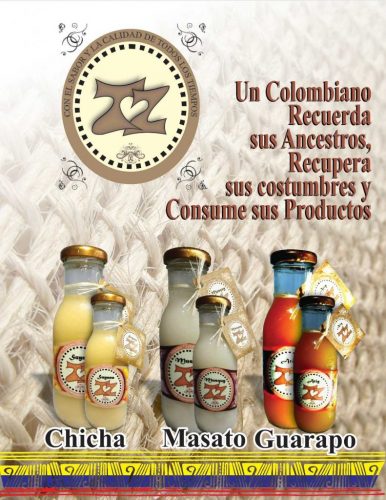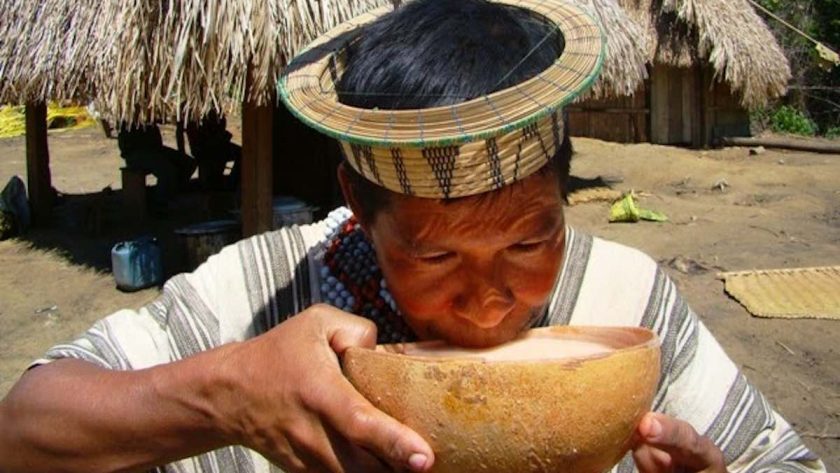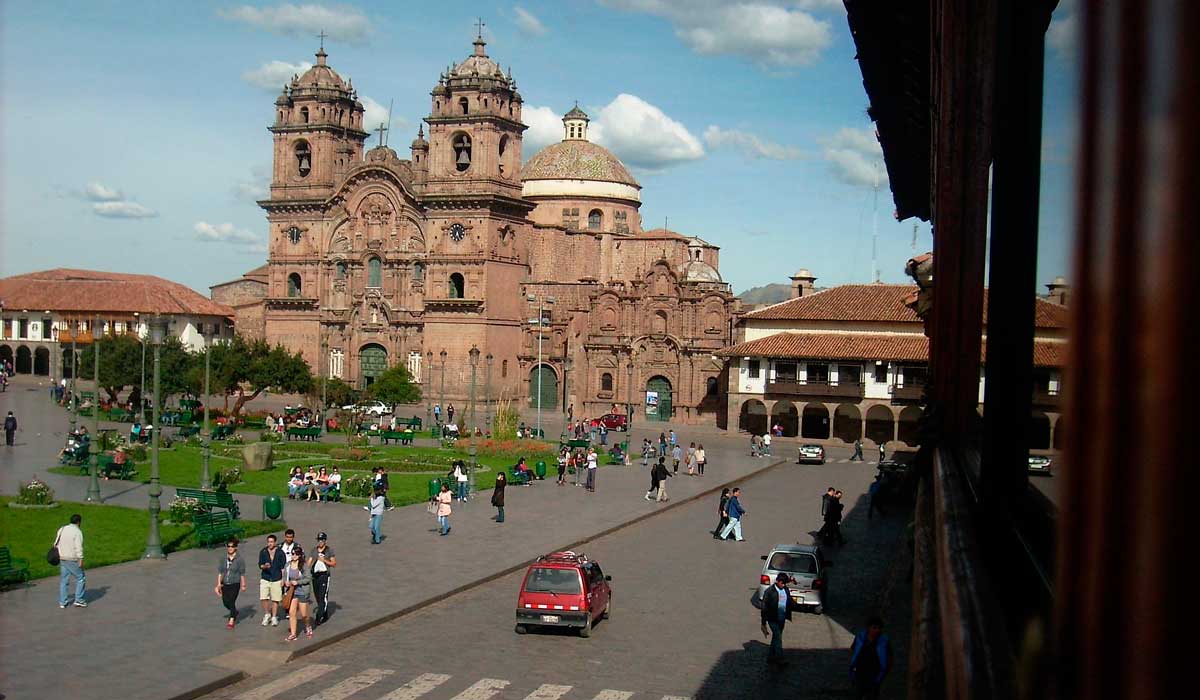This post is also available in:
 Español
Español
A group of intrepid tourists embarks on a trek through the Peruvian jungle, in the Iquitos Jungle and discovers an indigenous tribe. The Asháninka indigenous tribe starts the ceremonial act of greeting and approaches the guests smilingly handing them wooden bowls filled with a white liquid that tastes dark beer and plain yoghurt: masato.
Masato or boiled yucca is fermented with the help of the saliva of the women who chew the yucca mass that is left over from the boiling. They end up spitting it into the pitcher where the concoction is found. The enzymes in the saliva accelerate the fermentation of this drink, which has a high alcoholic concentration and welcomes one of the longest traditions of Peru!
Drinking Masato instantly satisfies hunger and stimulates digestion. Additionally, the drink lifts the spirits and invigorates the user

Masato as a greeting for guests
Anyone would think that the village’s rite of passage is coupled with an interest in getting its newcomers drunk – not at all! Masato is offered as a symbol of friendship and with the aim of pleasing their guests.
The affective bond that masato implies, and its bitter taste, explains why masato is also called ‘yucca beer’, ‘jungle beer’ or ‘Amazon beer’. It is without a doubt a good start to having an unforgettable experience in the Peruvian jungle.
The unique taste of Masato is a mixture of dark beer and plain yoghurt
Currently, its consumption in Latin America extends beyond the communities of the Amazon and for purposes related to resistance and performance. As ‘acullico’ or chewed coca leaf of the Andean world, masato is used as an energy source, mainly for agricultural work.
Its consumption eliminates hunger instantly and the euphoria caused by its intake allows to work constantly and with a tireless energy. You no longer have an excuse to trip Sacred Valley and arrive at Machu Picchu.

‘Mainstream’ masato with sugar for the broad public
Far from its genuine Amazonian bitterness, there is already a sweetened version that allows masato to be marketed to the general public. It has as its star ingredient sugar, besides changing its base product, yucca, for rice.
“A Colombian remembers his ancestors, recovers his customs and consumes his products”. This is the nostalgic slogan with which the company ‘Bogotá Food Industry’ commercializes the modern version of this sacred broth.
Another variant of masato is consumed in Venezuela, where rice masato is served with spices and fermented pineapple garapo. It is a much more tropical flavor obtained from the fermentation of rice, cloves, beer, sugar and geranium in a clay pot for three days.
A 4.000 year old multivitamin drink
Beyond its stimulating effects and its sacred consideration, masato provides a high nutritional value in those who consume it. Yucca is a tuber that has been abundant in the Amazon forest for more than 4.000 years.
This vegetable stands out because of its large amount of carbohydrates in the form of starch. Therefore, it not only satisfies the hunger but also offers a lot of fast energy, with few fats and a great amount of vitamin C and vitamin B6. For this reason, masato has nothing to envy to the gastronomy of Peru!
We do not know if you will like the masato, if you will have enough with wetting your lips or if you will repeat, what we do know is that you have wanted to try it and toast to an incredible adventure. Are we right?






